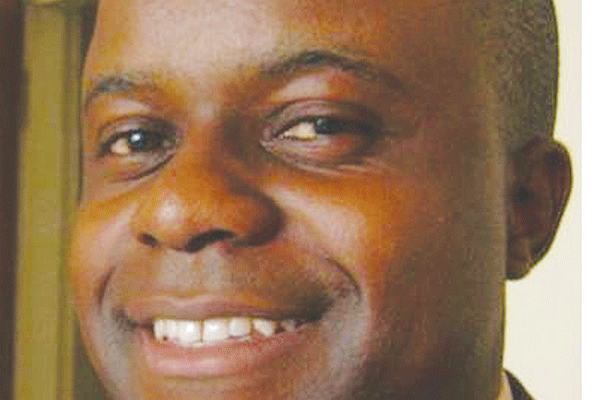
AN International Monetary Fund (IMF) team of economists is expected in Zimbabwe in the last quarter of the year for the 2018 Article IV consultations to assess economic and financial developments in the country.
BY FIDELITY MHLANGA
The review meetings are commencing when the country is yet to implement some of the recommendations by the multilateral finance institution in previous meetings.
IMF country representative Christian Beddies confirmed to this paper that this year’s consultations would take place within the next three months.
“We have no concrete dates for the Article IV consultations, but they are expected to be held during the last quarter of the year,” he said.
“There is some flexibility on when exactly an Article IV consultation is done. For this year, as indicated previously, it is expected to take place in the last quarter of the year.”
The Bretton Woods institution has laid out reforms as one of the preconditions for unlocking funding to the country, along with the clearance of arrears with the World Bank.
Zimbabwe cleared all outstanding arrears with the IMF, but is still behind schedule with World Bank and the African Development Bank debts.
- Chamisa under fire over US$120K donation
- Mavhunga puts DeMbare into Chibuku quarterfinals
- Pension funds bet on Cabora Bassa oilfields
- Councils defy govt fire tender directive
Keep Reading
The IMF’s previous Article IV consultation led by Ana Lucía Coronel, which took place from May 2 to 13 last year, acknowledged that the economy faced difficulties due to spending pressures and financial fragilities.
The impending meetings are likely to dwell on issues, which have been outstanding since 2016.
Seven recommended reforms are still outstanding, namely reducing employment costs; improving tax administration; accelerating reforms of state-owned enterprises (SOEs); reducing public domestic debt; reviewing the indigenisation policy; improving the use of land leases to support lending and establishing a one-stop shop for investors.
Last year, the IMF noted there was need to reduce the size of the government wage bill to re-orient spending towards priority capital and social outlays. According to the 2017 Staff Report on the Article IV Consultations, high spending pressures stemmed from high employment costs, government transfers to support specific economic sectors and elevated discretionary expenditure.
According to treasury’s consolidated statement of financial performance for the period ended December 31, 2017, the fiscal deficit surged to 14,7% of gross domestic product (GDP) in 2017 from 8,75% in 2016 and 2,4% in 2015.
The government breached its own commitment to fiscal prudence over the 2017 fiscal year, closing the year with a 59% budget overrun instead, driven by unbudgeted recurrent expenditures and some off-budget capital outlays.
Prospects of reducing the wage bill have been undermined by recent increases in the salaries of civil servants just before the July 30 elections.
The government is also yet to phase out income tax and capital gains exemptions and to restrict VAT exemptions to critical areas and low-income households. The measures were meant to buttress fiscal revenues.
The IMF had also recommended further action on reducing administration gaps in transit, export controls and excise taxes, and improving fiscal governance in the mining sector.
Last year, the IMF noted that SOE reform would improve accountability, enhance service delivery and set SOFs on a viable footing, lessening the burden on the national budget.
Early this year, government revealed the list of SOEs, which would either be privatised or merged, but no practical steps have been taken towards reform.
Against IMF advice, government continues to issue more debt instruments, driving public debt to unsustainable levels and crowding out the private sector in domestic debt markets.
Although the Indigenisation and Economic Empowerment Act has been amended through the Finance Act to repeal provisions imposing 49% equity restrictions on non-indigenous entities except for platinum and diamond sectors, the principal Act is still to be revised.
Investors still have questions about the scope and future direction of Zimbabwe’s indigenisation policy.
Government approved the setting up of a One-Stop Shop Investment Centre during former president Robert Mugabe’s administration in 2010, but progress on the matter has been slow. The shop is earmarked to smoothen investment start-ups in the country.
After Zimbabwe undertook the fast-track land reform programme in the early 2000s, lack of title deeds had been mentioned as one of the major hurdles to farmers’ access to bank credit, considered key to improving production on farms.
Government later issued 99-year leases to a limited number of farmers, which the banks still refused to accept.
This year government indicated it had tweaked 99-year leases to have them accepted as collateral. However, banks are still reluctant to take them as surety.
Labour and Research Institute of Zimbabwe economist Prosper Chitambara said government’s dithering on reforms had largely affected economic adjustment.
“After the visit of the IMF team progress was only on indigenisation, but nothing concrete has been done to reform the SoEs and public debt,” he said.
“The reforms are a bitter pill to swallow. The issue of public debt has implications on the structure and size of government.
“It is very difficult to get out of this debt. Now that elections are over, we expect the burden to lessen on the side of government.”
Zimbabwe National Chamber of Commerce CEO Christopher Mugaga also said “the onus is on the IMF’s side after Zimbabwe has cleared arrears whether they are going to show the appetite to unlock funding.
“But there is little room for that given that there is pressure from there major shareholders like the USA which recently reimposed sanctions on Zimbabwe,” he said.
“With the disputed election outcome, it is likely that political risk will again be used as a reason for not unlocking fresh funding.”











